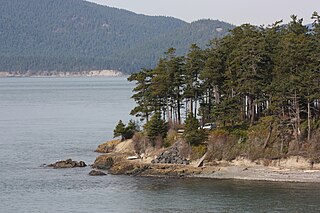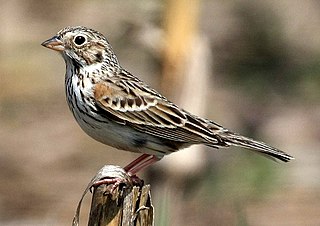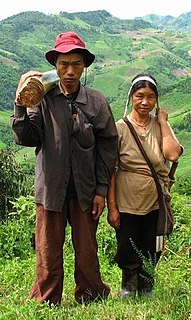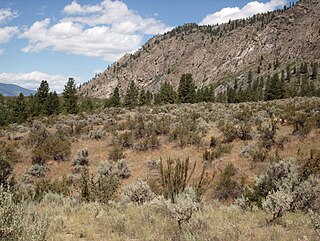
Kiwi are flightless birds endemic to New Zealand of the genus Apteryx and family Apterygidae. Approximately the size of a domestic chicken, kiwi are by far the smallest living ratites.

The Douglas fir is an evergreen conifer species in the pine family, Pinaceae. It is native to western North America and is also known as Douglas-fir, Douglas spruce, Oregon pine, and Columbian pine. There are three varieties: coast Douglas-fir, Rocky Mountain Douglas-fir and Mexican Douglas-fir.

Sir David Frederick Attenborough is an English broadcaster, biologist, natural historian and author. He is best known for writing and presenting, in conjunction with the BBC Natural History Unit, the nine natural history documentary series forming the Life collection, a comprehensive survey of animal and plant life on Earth.

David Pearce is a British transhumanist philosopher. He is of the co-founders of the World Transhumanist Association, currently rebranded and incorporated as Humanity+. He approaches ethical issues from a lexical negative utilitarian perspective.

The vesper sparrow is a medium-sized New World sparrow. It is the only member of the genus Pooecetes.

An argus, or argus pheasant, is a member of a clade in the tribe Pavonini of the family Phasianidae, containing two species of bird that are closely related to peafowl. It has hundreds or thousands of tiny white spots on its plumage pattern, and thus its naming might have been in reference to the mythical hundred-eyed giant, Argus Panoptes.

Humans are the most abundant and widespread species of primate, characterized by bipedalism and large, complex brains. This has enabled the development of advanced tools, culture, and language. Humans are highly social and tend to live in complex social structures composed of many cooperating and competing groups, from families and kinship networks to political states. Social interactions between humans have established a wide variety of values, social norms, and rituals, which bolster human society. Curiosity and the human desire to understand and influence the environment and to explain and manipulate phenomena have motivated humanity's development of science, philosophy, mythology, religion, and other fields of study.

Pokémon is a series of video games developed by Game Freak and published by Nintendo and The Pokémon Company under the Pokémon media franchise. It was created by Satoshi Tajiri with assistance from Ken Sugimori, the first games, Pocket Monsters Red and Green, released in 1996 in Japan for the Game Boy, later released outside of Japan as Pokémon Red and Blue. The main series of role-playing video games (RPGs), referred as the "core series" by their developers, have continued on each generation of Nintendo's handhelds. The most recently released core series game, Pokémon Legends: Arceus, was released on January 28, 2022, for the Nintendo Switch. It is a prequel to the 2006 Nintendo DS games Pokémon Diamond and Pearl.

Australia, officially the Commonwealth of Australia, is a sovereign country comprising the mainland of the Australian continent, the island of Tasmania, and numerous smaller islands. With an area of 7,617,930 square kilometres (2,941,300 sq mi), Australia is the largest country by area in Oceania and the world's sixth-largest country. Australia is the oldest, flattest, and driest inhabited continent, with the least fertile soils. It is a megadiverse country, and its size gives it a wide variety of landscapes and climates, with deserts in the centre, tropical rainforests in the north-east, and mountain ranges in the south-east.

Freshwater fish are those that spend some or all of their lives in fresh water, such as rivers and lakes, with a salinity of less than 1.05%. These environments differ from marine conditions in many ways, especially the difference in levels of salinity. To survive fresh water, the fish need a range of physiological adaptations.
The Species at Risk Act (SARA) is a piece of Canadian federal legislation which became law in Canada on December 12, 2002. It is designed to meet one of Canada's key commitments under the International Convention on Biological Diversity. The goal of the Act is to prevent wildlife species in Canada from disappearing by protecting endangered or threatened organisms and their habitats. It also manages species which are not yet threatened, but whose existence or habitat is in jeopardy.

An endangered species is a species that is very likely to become extinct in the near future, either worldwide or in a particular political jurisdiction. Endangered species may be at risk due to factors such as habitat loss, poaching and invasive species. The International Union for Conservation of Nature (IUCN) Red List lists the global conservation status of many species, and various other agencies assess the status of species within particular areas. Many nations have laws that protect conservation-reliant species which, for example, forbid hunting, restrict land development, or create protected areas. Some endangered species are the target of extensive conservation efforts such as captive breeding and habitat restoration.
The World Register of Marine Species (WoRMS) is a taxonomic database that aims to provide an authoritative and comprehensive list of names of marine organisms.
The Australian Faunal Directory (AFD) is an online catalogue of taxonomic and biological information on all animal species known to occur within Australia. It is a program of the Department of Sustainability, Environment, Water, Population and Communities of the Government of Australia. By May 12, 2021, the Australian Faunal Directory has collected information about 126,442 species and subspecies. It includes the data from the discontinued Zoological Catalogue of Australia and is regularly updated. Started in the 1980s, it set a goal to compile a "list of all Australian fauna including terrestrial vertebrates, ants and marine fauna" and create an "Australian biotaxonomic information system". This important electronic key and educative package enables faster and orderly identification of Australian centipede species.

Heterocyathus is a genus of coral of the family Caryophylliidae.

South Okanagan—Similkameen National Park Reserve is a proposed national park reserve located in the Regional District of Okanagan-Similkameen of British Columbia. The goal of the park is to work with the local First Nations to protect a large patch of Okanagan dry forests and part of the northern reach of the Columbia Plateau ecoregion in Canada.

Hypericum pallens, commonly known as the Pale St. John's wort or Mount Lebanon St. John's wort, is a species of flowering plant in the family Hypericaceae which is found in Turkey, Lebanon, and Syria.
Climate change in the Republic of Ireland is having a range of impacts. Increasing temperatures are changing weather patterns, with increasing heatwaves, rainfall and storm events. These changes lead to ecosystem on land and in Irish waters, altering the timing of species' life cycles and changing the composition of ecosystems. Climate change is also impacting people through flooding and by increasing the risk of health issues such as skin cancers and disease spread. Climate change is considered to be the single biggest threat to Ireland according to the head of the Defence Forces of Ireland, Mark Mellett.













